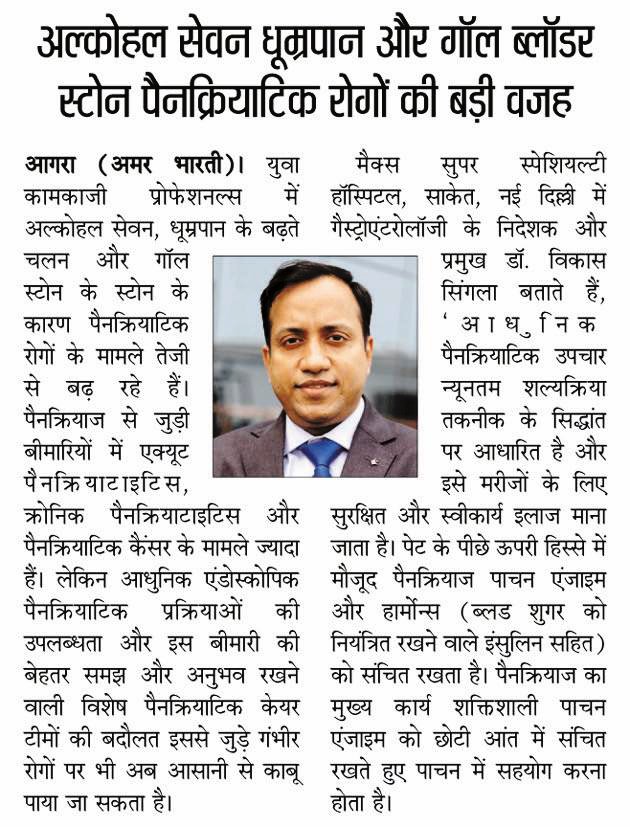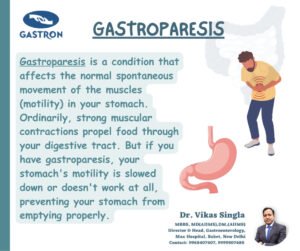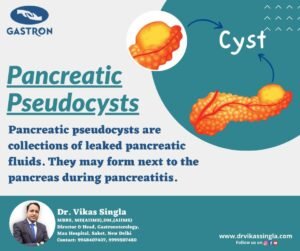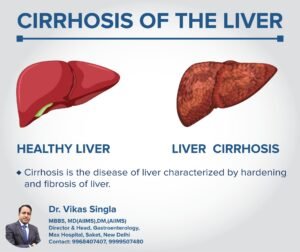The pancreas is a gland which is located behind the stomach in the upper abdomen and secretes digestive enzymes and hormones (including insulin–which regulates blood sugars). Alcohol consumption, smoking and gall stones are the major reasons for a rise in number of cases of pancreatic diseases among young working professionals as well. Acute pancreatitis, chronic pancreatitis and pancreatic cancer are the common diseases of pancreas.
The major functions of the pancreas is to aid in digestion by secreting powerful digestive enzymes into the small intestine. But when these digestive enzymes are activated prior to the release, it starts attacking and damaging the pancreas leading to swelling of pancreas, a condition known as pancreatitis. Based on various factors, pancreatitis is differentiated as either acute or chronic pancreatitis.
Acute Pancreatitis – The most common conditions leading to acute pancreatitis are, gallstones, alcohol consumption more than 50 gm per day, high lipid and calcium levels in the blood, certain medications, trauma to upper abdomen, viral infections and pancreatic tumours. Stones in the gall bladder can pass into the bile duct and cause obstruction of pancreas duct and lead to acute pancreatitis. In old age, tumours are common cause of acute pancreatitis.Upper abdominal pain radiating to upper back and relieved by bending forward are the most common symptoms. Few patients with more serious illness may have difficulty in breathing and decreased urine output.
Once diagnosed, most of the patients requires hospitalization for the management. Mild pancreatitis usually resolves with supportive care, which includes analgesics and intravenous fluids. Moderately severe and severe acute pancreatitis can be potentially life-threatening and requires more extensive monitoring and supportive care. A tube through the nose is often placed for the feeding purpose. Infected fluid collecting around the pancreas, sometimes known as pseudocyst, can be drained endoscopically or by placing a percutaneous drain tube.
With the proper treatment and in expert hands, most of the patients with acute pancreatitis recover well. Treatment of underlying cause is essential to prevent the recurrence, alcohol should be stopped and gall bladder surgery is performed in patients with stone disease. Raised lipid or calcium levels are controlled by the medications.
Chronic pancreatitis – Chronic pancreatitis is long standing disease resulting in reduction in size of pancreas, dilatation of duct of pancreas and formation of stones in ducts. Alcohol consumption, smoking and genetic factors are leading cause of chronic pancreatitis. Patients with chronic pancreatitis can have continuous pain or recurrent attacks of pain in upper abdomen. Patients with long standing illness can develop diarrhoea due to lack of pancreatic enzymes required for digestion of food and diabetes due to lack of insulin. Patients with chronic pancreatitis need specialized investigations and care. Endoscopic scarless procedures plays important role in diagnosis and management of patients with chronic pancreatitis.
MRCP, and endoscopic ultrasound (EUS) are the special test to study the pancreas and its duct. EUS provides the excellent information about the pancreas gland and the duct. Endoscopic retrograde cholangiopancreatography (ERCP) is a special endoscopic technique to treat narrowing in pancreatic duct known as stricture and limited number of small stones. During this procedure, a wire and other accessories are introduced in the pancreatic duct to remove the stones or dilate the narrow areas through ballooning and stent placement. For the large stones in pancreatic duct, a small scope known as pancreatoscope is introduced in the pancreatic duct and Electrohydraulic lithotripsy (EHL) energy is used to break the stones. Extracorporeal shock wave lithotripsy (ESWL) is a technique, where ultrasound and X ray are used to focus the stone, which is broken by the use of shock waves. Few patients with chronic pancreatitis may form a fluid collection around the pancreas known as pseudocyst, which may lead to fever, pain abdomen, jaundice and vomiting. EUS guided cystogastrostomy is a safe technique, during which pseudocysts are drained inside the stomach obviating the need of surgery.
In few patients with chronic pancreatitis, a mass may form in pancreas, which may be due to inflammation or tumor formation. Such lesions requires extensive evaluation with CT, PET scan and endoscopic procedures. Sometimes sample is obtained through endoscopic ultrasound. Many of these lesions may regress after stopping alcohol and smoking, few of such lesions may require surgery.
Pancreatic tumor – Smoking, diabetes mellitus, chronic pancreatitis and obesity are the common underlying risk factors of pancreatic cancer. Most common symptoms of pancreatic cancer are upper abdomen pain, jaundice, loss of appetite and weight loss. In patients with high suspicion, CT scan is obtained first, and in case of equivocal results, EUS and tissue sampling may be performed. Around 20% of the cancer are localized and can undergo surgery, rest of the patients are managed by chemotherapy. After chemotherapy, few lesions may regress and become resectable and can undergo surgery. Prior to chemotherapy, ERCP and stenting is often performed to treat the jaundice. During ERCP, stent is placed in the bile duct, to remove the blockade caused by the tumor. Few patients with pancreatic cancer havesevere pain, EUS guided CPN (Celiac plexus neurolysis) is performed in these patients for the pain relief.
Emergence of specialized pancreatic care teamsequipped with better understanding of the disease & experience in performing complex endoscopic pancreatic procedures is likely to change the outcome of pancreatic diseases in favourable direction.
Modern pancreatic treatment is based on principle of utilising minimally invasive techniques and can aptly be described as being safe acceptable for the patients.








